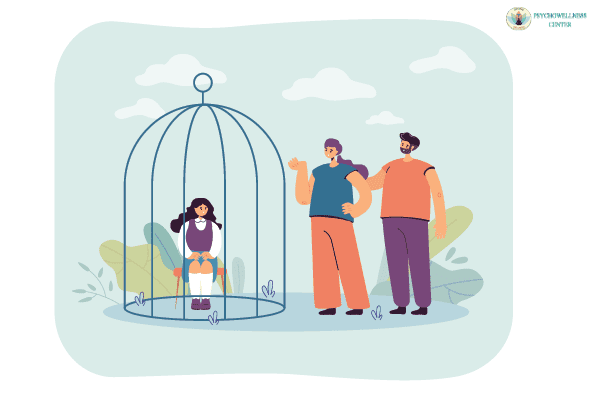HOW TO IMPROVE THE PARENT-CHILD RELATIONSHIP

Early relationships between parents and children are crucial because they have a direct impact on a child's physical, social, emotional, and attachment development, which shapes the child's personality, behavior, relationships, and life choices in the future.
In other words, the success of the child in the future is built on this bond.
According to a Harvard University study, the best indicator of a child's future success is a loving parental relationship.
One of the most important aspects of parenting is developing a strong and loving bond with your child.
Despite its importance, daily life rarely centres on developing healthy parent-child bonds.
Advantages of a close relationship with your child
A healthy relationship has several advantages for a child's growth. They help a youngster succeed in the future in the following ways:
Guaranteed Attachment
Early interactions with parents have an impact on a child's capacity to establish a safe relationship. The best sort of attachment, according to psychologists, is a secure one.
Stronger parent-child bonds make children more resilient.
When faced with difficulties, they persist. They perform better academically, exhibit less behavioural issues, and exhibit other favourable traits.
How one forms relationships as an adult is influenced by their family relationships. People who are securely linked have healthy internal working models that enable them to master social competence. further, to make this persistent you can find the Best psychologist in India.
Social and Emotional Control
The basis for a child's social development is laid in the early years of life.
Young children imitate and watch their parents to develop self-control. Children's emotional development is facilitated by having close contact with their parents.that can be facilitated with the help of Online counselor as it is easy to approach.
Mental Well-Being and Health
A child's mental health is closely related to a healthy parent-child interaction.
Studies show that having a poor connection raises your risk of developing symptoms of depression. and for any help needed you can consult a Counselling psychologist.
Self-Motivation
Humans' intrinsic motivations to interact with others are crucial.
A child is more naturally driven to participate in an activity when they can connect with the individuals who value it.
Children's academic interests and success can be greatly influenced by their parents' strong ties with them.
How To Make Parent-Child Relationships Stronger?
Older kids don't necessarily value more time spent with you as a sign of a tighter bond, whereas younger kids do.
Actually, spending a lot of time interacting with your children is not necessary.
More than merely spending time together, kids require quality time.
However, consider your parenting objective before focusing on your relationship.
Do you intend to parent with the purpose of developing solid relationships?
Knowing your end aim will enable you to prioritize your everyday activities.
Is nurturing a strong bond more crucial than, say, getting good grades?
Is it worth causing damage to the garbage can to empty it?
Making your Relationship a priority can help you achieve all of your other objectives much more easily if you have a solid connection.
Here are the measures you may do to improve your relationship after determining your aim.
First, LISTEN
To demonstrate attunement is the first step in building a relationship. It requires being considerate to your children's emotions. The best approach to connect with someone is through emotional awareness.
You share their enjoyment when they're joyful.
When they're unhappy or angry, you feel the same way, and you visually communicate it through your body language, face expression, and words.
For instance, if your child and you are having a disagreement and they are sad, you can say, "You look really upset, it is so unjust, isn't it?" while frowning.
In most cases, this attunement may instantly calm a child, and by doing so, you quickly strengthen and mend the relationship—even in the midst of a conflict.
Then, repair your relationship boat's hole.
Conflicts with your child over almost anything indicate that you are more likely to be experiencing relationship issues than discipline issues.
If you believe you may have been in error during a recent argument, you should apologize, according to some parents, in order to heal the situation. Every task does not have to be completed by you. Mention the area where you could have made a change. If your child's feelings have been hurt, express your regret.
Acknowledging a mistake won't undermine your authority. Taking accountability for a mistake demonstrates your maturity. You will gain respect for that.
Take these steps if there has not been a fight recently:
Start by addressing the largest argument or problem in your relationship.
Consider how essential it is to you to be correct.
Will you worry more about winning this battle or your relationship with your child in 20 years?
Discuss your choice in #3 with your youngster.
Invite your child to participate in a collaborative discussion about potential solutions. Do it jointly. Relationships require two people.
Repeat #1 through #5 for each conflict on your list.
Lastly, Quality.
Here are a few key characteristics that psychologists have discovered will improve your bond with your child.
Exercise Warm, Responsive Parenting
Your child can develop a stable bond with the aid of a responsive parenting approach, such as authoritative parenting.
Being responsive means taking care of your child's needs and being a warm parent. For instance, pay attention to how your youngster is feeling. When your youngster is in distress or acting out emotionally, acknowledge their feelings. Instead of dismissing, use emotional coaching to educate children how to regulate their emotions.You can search for the best Therapist near me.
Invest time in one another.
Doing more educational activities does not equate to spending more time with your child.
It entails being aware of your child's requirements. It entails being there.
If handled properly, even resolving disputes may turn into quality time.
Many parents try to bulldoze through, skip over, or throw issues under the floor when they arise so they may "happily spend quality time together."
Quality does not, however, imply that only positive emotions exist.
Spending meaningful time with your child while they are having tantrums, teaching them to disagree politely and gently, or encouraging them to solve problems rather than just say no are all worthwhile endeavors.
Use constructive punishment
The most typical technique to sour your relationship with your child is through punishment.
Punishment is not necessary to teach.
Discipline is more about teaching than punishment.
Teaching, leading, and correcting your child in a loving yet strong manner are all parts of positive discipline.
Positive and caring discipline is beneficial for kids as young as 1 year old.
Positivity does not equate to permissiveness. Permissive parents don't enforce rules or create boundaries.
On the other hand, authoritative parents maintain a cheerful attitude while enforcing fair rules.
Contributed By- Dr. (Prof) R.K Suri & Ms. Varshini Nayyar




SHARE